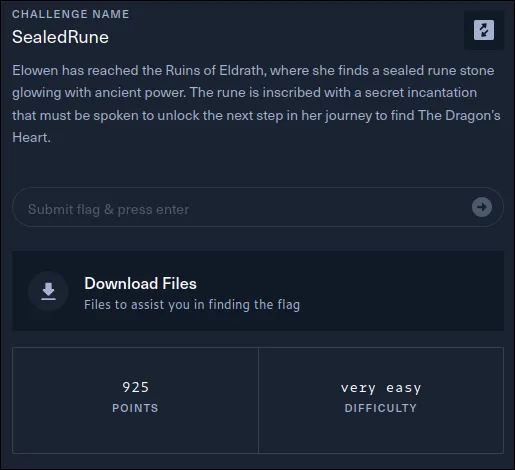
Programs/Applications Used
- Kali Linux (virtual machine)
- Radare2
Useful Links
Preliminary Steps
N/A
Analysis
The challenge, same as the last, gives a single downloadable file, so first I get some basic information about the file:

As mentioned in the first challenge, the only real thing of note here is that the executable isn’t stripped. So it should be another relatively easy read.
So next will be to simply run the file and see what happens.
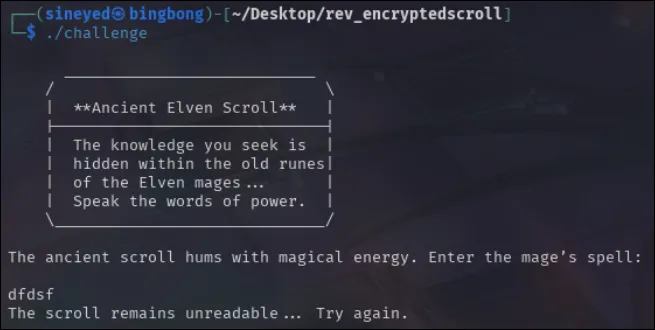
I pressed enter a few times to see if that’d affect anything, but nothing happened. So in the end, it essentially looks for a specific input before giving something. (in this case a refusal) So now to fire up radare2 and see what’s going on inside.
I’ll use the command r2 -d challenge. However, given how I solved the last challenge that was somewhat like this one, I think I’ve decided on a general way of handlig these types of files.
- Analyze binary:
aaa - List functions, locate entry/main:
afl- If present, then patch anti-debug: with
s sym.anti-debugandwa ret
- If present, then patch anti-debug: with
- Set breakpoints at critical functions (like input checks):
db sym.check_input - Run program to hit breakpoints:
dc - Step into decoding functions with:
db sym.decode_secret,dcand/ordcr - Inspect returned values and pointers:
dr raxandps @ rax
So, let’s give the chosen methodology a shot.
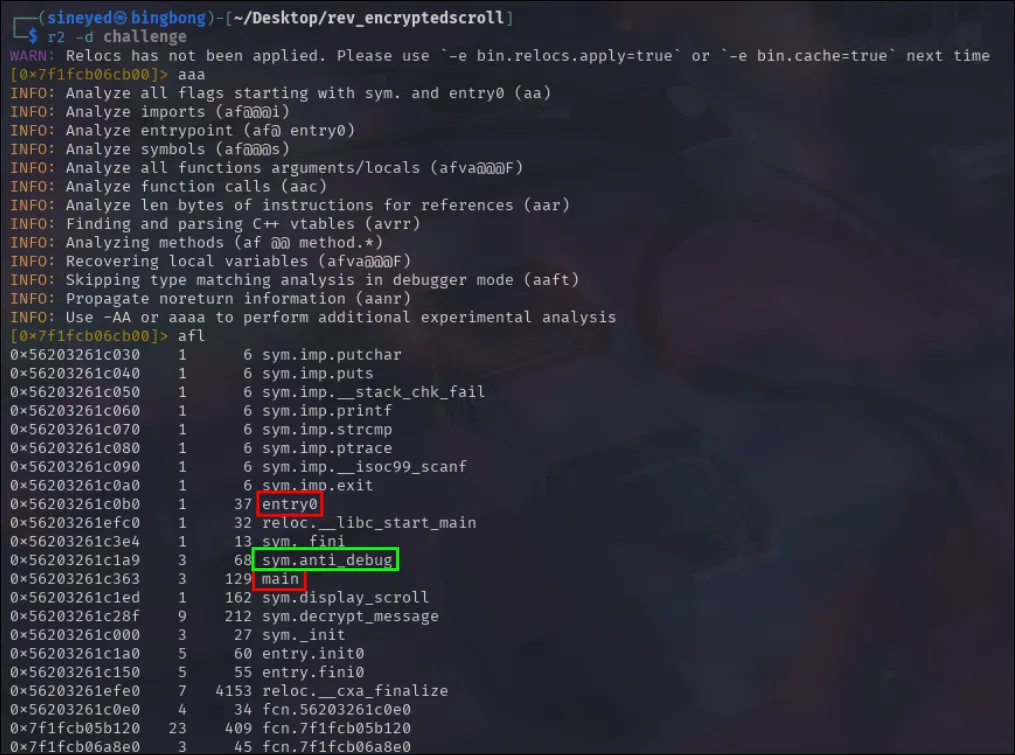
So here it’s seen that there’s an entry0 and main function, but also the sym.anti_debug that was seen in the previous challenge. So to continue our method, we’ll patch the sym.anti_debug, then set a debug at main and execute to the function. Though I also noticed sym.decrypt_message from the screenshot that could be of interest to look over. So I’ll go ahead and set a breakpoint there, then step through and inspect the strings.
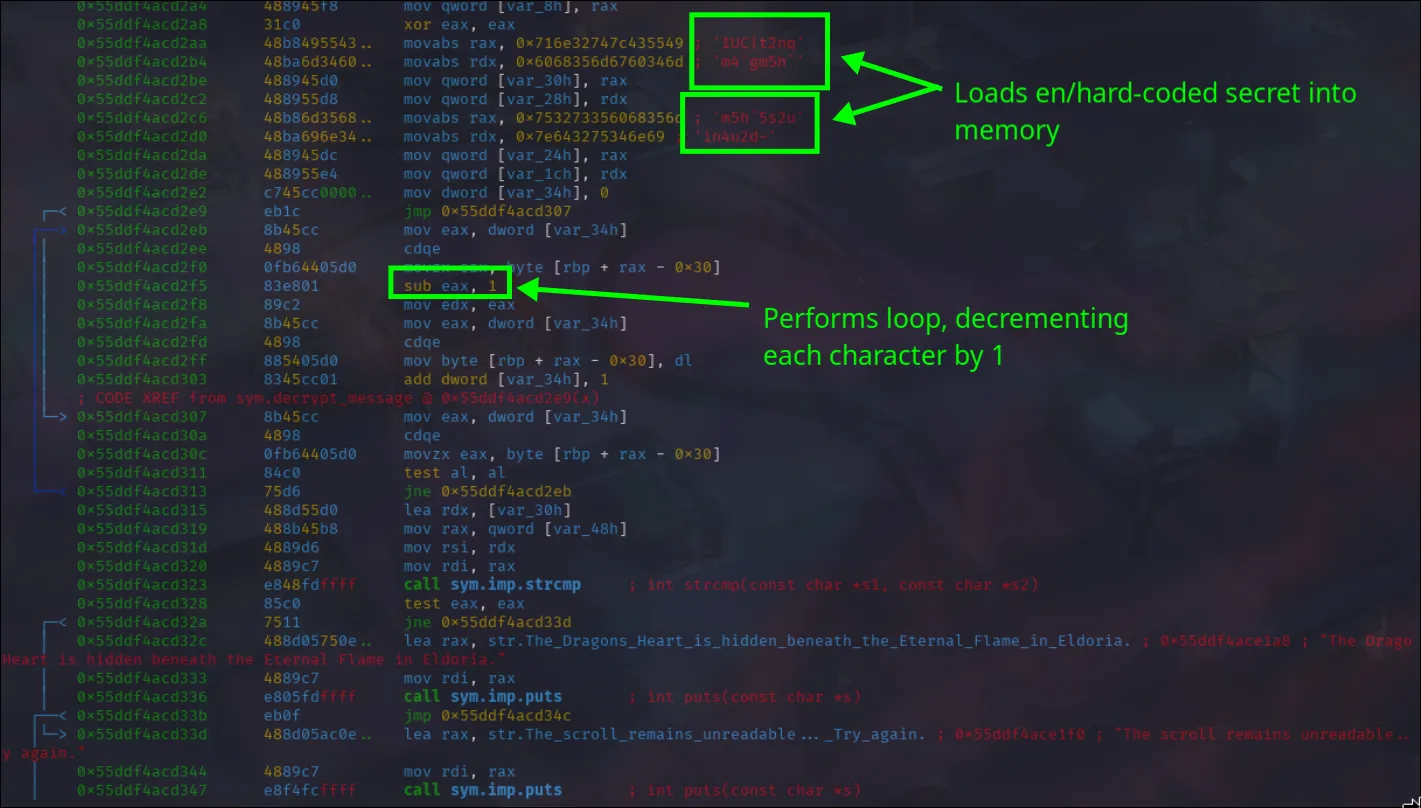
I used: aaa, s sym.anti_debug, wa ret to essentially overwrite the debugger block. Then used db sym.decrypt_message, dc and input the word test to hit the breakpoint for analysis. Then used ds and pdf so we can start analyzing sym.decrypt_message.
So taking those strings I can write a quick little python script to decode it. The script being these 3 lines:
encoded = "IUC|t2nqm4`gm5h`m5h`5s2uin4u2d~"
decoded = ''.join(chr(ord(c) - 1) for c in encoded)
print(decoded)Which then outputs:
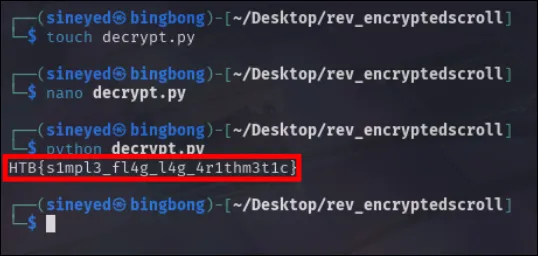
Powered by Fuwari
